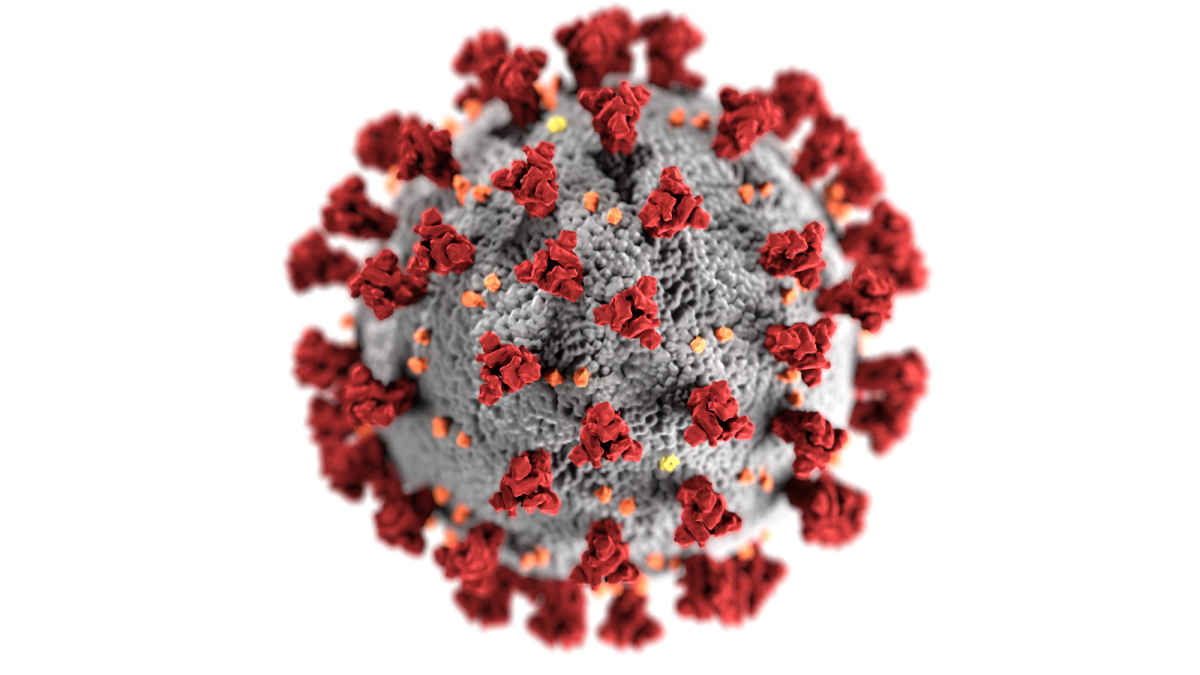
UM partners with artificial intelligence leader Atomwise to pursue COVID-19 therapies
Two University of Manitoba researchers have received support from Atomwise, the leader in using artificial intelligence (AI) for small molecule drug discovery, to explore broad-spectrum therapies for COVID-19 and other coronaviruses.

Jorg Stetefeld: “It is crucial to gain a molecular understanding of how one particularly attractive protein target, nsp12, interacts with another key protein named nsp8. Once learned, this knowledge can be used to develop both new drugs and repurpose existing ones.”
Faculty of Science professor Jörg Stetefeld (chemistry), Tier-1 Canada Research Chair in Structural Biology and Biophysics, and associate professor Mark Fry (biological sciences) received support through Atomwise’s Artificial Intelligence Molecular Screen (AIMS) awards program, which seeks to democratize access to AI for drug discovery and enable researchers to accelerate the translation of their research into novel therapies.
“The current pandemic of COVID-19 is caused by a novel virus strain of SARS-CoV-2,” says Stetefeld. “To develop the most efficient therapeutic strategies to counteract the SARS-CoV-2 infection, it is crucial to gain a molecular understanding of how one particularly attractive protein target, nsp12, interacts with another key protein named nsp8. Once learned, this knowledge can be used to develop both new drugs and repurpose existing ones.”
Professro Ben Bailey-Elkin, from the Stetefeld laboratory, will test compounds that Atomwise’s AI team sends him after they perform an in silico screen of millions of compounds, and carry out the subsequent biochemical and biophysical characterization, significantly reducing the time it would traditionally take to carry out this process. The Atomwise team will use their proprietary AI software to search for promising direct-acting antivirals, which interfere with the function of the virus’s targeted proteins.
Professor Fry’s laboratory will take advantage of Atomwise’s cutting edge AI to screen a panel of small molecules predicted to interfere with the cellular signaling pathway that is central to the “cytokine storm” associated with the development of the COVID-19 acute respiratory distress syndrome.

Professor Fry’s laboratory will take advantage of Atomwise’s cutting edge AI to screen a panel of small molecules predicted to interfere with the cellular signaling pathway that is central to the “cytokine storm”.
“Cytokines are a group of small proteins secreted by cells for the purpose of cell-to-cell communication, and in healthy individuals, these cytokines regulate key activities such as immunity, cell growth and tissue repair, for example,” says Fry. “A large number of patients with COVID-19 will develop life threatening pneumonia, accompanied by a so-called “cytokine storm” where the body experiences excessive or uncontrolled release of a number of these molecules.”
Fry adds, “The cytokine storm is thought to play a major role in the development of COVID-19, and there is some evidence that drugs which inhibit key cytokines such as interleukin-6 may reduce the severity of the disease. It’s important to note that many of these inhibitors are part of a therapeutic class called biological drugs. These can be expensive to make and supply may be limited. My hope is that we can develop a small molecule inhibitor of the cytokine storm that will be easy to synthesize and available to all who need it.”
“Atomwise’s patented AI technology has been proven in hundreds of projects to discover drug leads for a wide variety of diseases” said Dr. Stacie Calad-Thomson, vice president and head of Artificial Intelligence Molecular Screen (AIMS) Partnerships at Atomwise. “We’re hopeful that the therapies discovered will not only target this pandemic, but potential future pandemics.”
Research at the University of Manitoba is partially supported by funding from the Government of Canada Research Support Fund.






